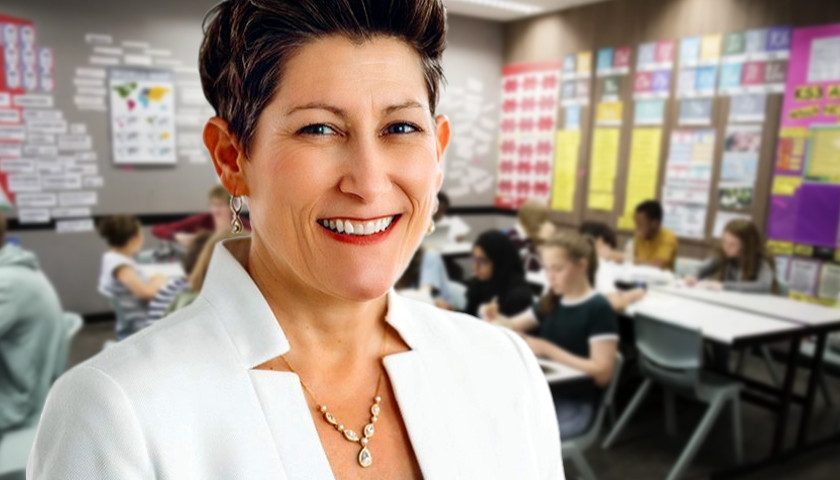The national average American College Testing (ACT) score for 2022 high school graduates fell to 19.8 out of 36 in 2022, the lowest average score recorded in over 30 years, and Arizona did not escape this decline. Arizona’s average score was 18.4 in 2022, over a point less than last year, and ACT CEO Janet Godwin called the downward movement alarming.
“The magnitude of the declines this year is particularly alarming, as we see rapidly growing numbers of seniors leaving high school without meeting the college-readiness benchmark in any of the subjects we measure,” said ACT CEO Janet Godwin (pictured above).
The ACT tests students in English, math, reading, and science and has college-readiness benchmarks, which correlate to the likelihood that a student will succeed in first-year college-level courses based on their score in a given subject. Across the four ACT subject areas, the benchmark scores are, respectively, 18, 22, 22, and 23; each score is out of a possible 36. In 2022, the average score for Arizonan high school graduates was below the benchmarks across the board.
Overall, 42 percent of seniors tested across the nation met none of the college-readiness benchmarks, nearly double the 22 percent who passed all four. As for getting a four-year bachelor’s degree, only 44 percent of students who did not pass any of the benchmarks completed their degree, 30 percent less than those who passed all four areas.
This year’s test results show the first time Arizona has dipped below an average composite score of 19 in the past five years. From 2017 to 2021, the average overall score hovered above 19. The state’s best year was 2017, with a score of 19.7. Traditionally, English is the best subject for Arizonan students, with roughly 47 percent of students scoring above the benchmark every year. On the other hand, science is not the state’s strong suit.
Moreover, Godwin argued that these yearly declining scores are not solely due to the pandemic but showcase flaws in the education system as a whole made more evident by COVID-19.
“These declines are not simply a byproduct of the pandemic. They are further evidence of longtime systemic failures that were exacerbated by the pandemic. A return to the pre-pandemic status quo would be insufficient and a disservice to students and educators,” said Godwin. “These systemic failures require sustained collective action and support for the academic recovery of high school students as an urgent national priority and imperative.”
Yet, when it comes to Arizona, some reforms to the education system just hit the state. Despite some hiccups along the way to going into effect, the Universal Empowerment Scholarship Accounts (ESA) law now gives parents a bit more flexibility to decide how their child is educated. Under the program, parents can receive roughly $7,000 per school-age child every year. This money can go to any school-related need, such as private school tuition, tutors, therapists, or home education.
This law is a first of its kind in the nation, and The Washington Post called it the “greatest single policy win for parents” thus far in 2022.
The gold standard for educational freedom has come to life in Arizona. @hughhewitt: https://t.co/YgzHVSrDVH pic.twitter.com/Sbl6akxurI
— Doug Ducey (@DougDucey) October 17, 2022
Moreover, there may be more reforms in the future depending on election results. Republican gubernatorial nominee Kari Lake is an outward proponent of dual-track education, which would provide Arizonan students with trade skills and vocational training during high school. Therefore, any student not aiming to go on to college can jump out of high school more ready for high-paying jobs on the market.
– – –
Neil Jones is a reporter for The Arizona Sun Times and The Star News Network. Follow Neil on Twitter. Email tips to [email protected].
Photo “Janet Godwin” by American College Testing.








